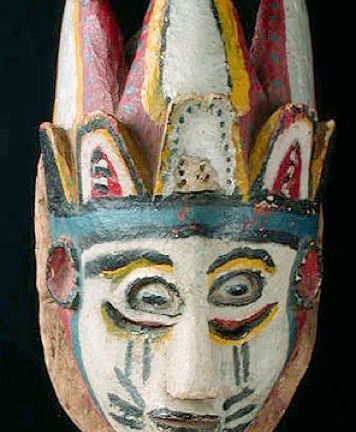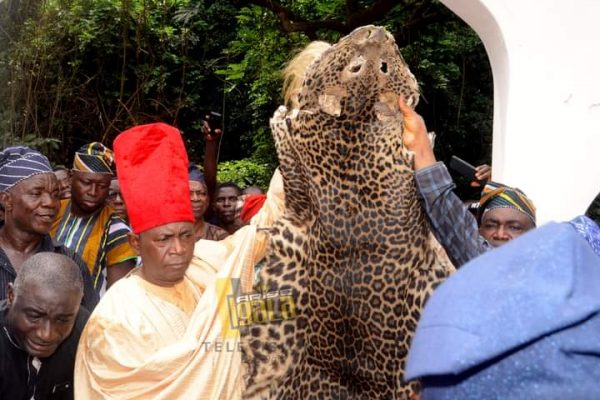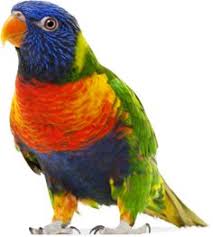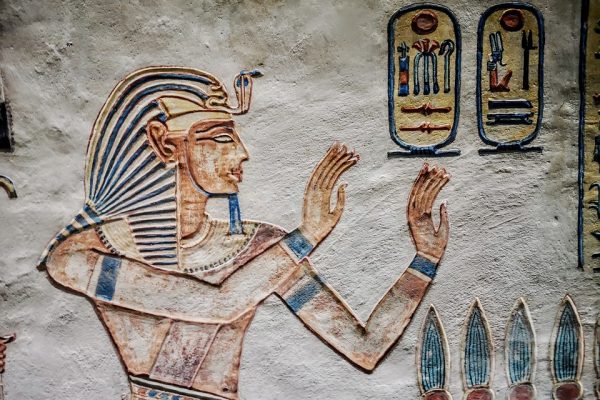Wikipedia, the online encyclopedia, informs that the First Fruits were, originally, “a religious offering of the first agricultural produce of the harvest … to the deity.” In the same vein, the ancient Igala instituted a sacred tradition of offering slices of bare, oil-free roasted yam (Íyálọ́-Ọgáláà) to their ancestors. The festival, by virtue of its unbroken observance over countless centuries, underscores the Igala’s commitment to the veneration of their ancestors, a vital component of its indigenous religion, known in the local parlance as Ògwùchẹ́kwọ̀.
Indigenous Festivals
An ancient, agrarian kingdom of farmers, hunters, fishermen and warriors, Igalaland is home to a number of colourful, breath-taking and, sometimes, awe-inspiring festivals, including the Égwu, Ócho, Ọ̀gbaìdù, Ọ̀ganyiganyi, Iníkpi as well as a boat regatta. All of these events are held at Ídá, the traditional Igala capital and the seat of the Igala monarch, their father and paramount Priest-King. Other annual festivals, which are celebrated in the provinces, include the Ègbè Festival, which is associated with the Ọ̀mẹ̀ Descendants of Ègwúmẹ́, a large community in central Igalaland. There is also the Ọ̀gànì Muslim Festival that takes place annually in the Ánkpa Chiefdom east of the kingdom.
Égwú: Semantic Fields
The word, Égwú, in Igala language, means different things: Firstly, it stands for a dead body. Secondly, an incarnate being, ‘masquerade’ in Nigerian English, also goes by that generic name. Finally, it refers to the community of the ancestors, éfọjà-égwú.
The Symbolic ‘First Fruit’
The Égwú or Ìbégwú (i.e. Ìbó-égwu) Festival takes place “at the commencement of the yam harvest,” usually in the rainy season, as documented by Miles Clifford, a Colonial Officer deployed to ‘Idah Division’ in the 1930s. The choice of yam as representing the ‘first fruit’ by the ancestors who designed the festival, was deliberate, being the most cherished of the crops cultivated by the Igala, in view of the various ways by which it is consumed, particularly, in a pounded form and accompanied by oil-rich, meat-filled, hot soup. It is for this and other reasons that it is elevated and generally recognized as the “Father of all Foods. “Úchu ch’Àtá-ọ́jẹ̀.”
Preparing for the Feast
According to Clifford, “The actual day appointed for the commencement of the festival is announced by the Ata after consultation with the Ífá Oracle. The date is then transmitted to all the provincial Chiefs (Àmonú) and the town-crier disseminates the information, kick-starting a period of frenzied preparations involving mandatory production of corn-beer and pounded-yam by all Igala families all over the Ata’s Land, Ánẹ́-Átā. Meanwhile, the paramount Priest-King “summons all his titled relatives to Idah. For some days previously, his compound (Éfu-ọfẹ) is a scene of great activity, as there is endless stream of offerings of yams (‘First Fruits'”). Each Ónú, out of the entire nineteen, answers the Ata’s call, carrying with him herds of livestock, countless yam tubers, smoked games and other gifts; “and there is much brewing of beer and palm-wine in preparation for the ensuing feast.”
Celebration at the Capital
On the day of the festival, at the capital, the Àtá carries out the sacrifices “in person” at the two external palace-gates – Ànùkwù Ọ̀lọ́fẹ – assisted by the Ọ̀gbẹ̀, his Chief Retainer or Ónójí. He “sacrifices nine animals to the ancestral spirits of his nine immediate predecessors,” represented by nine staffs (Òkwùtẹ̀). These are brought outside and leaned against the wall by the Átẹ́ẹbọ, the Ata’s High Priest. The king, sacrificing a goat to each of his nine predecessors, first, calls him by name, invoking his spirit; then, he prays:
“Àtá Òkólíko” (or any other name, as the case may be), “give me health; keep death far from me; and, next year, I will repeat this sacrifice to you.”
He, then, slaughters a goat for that ancestor and proceeds to the next, until all the nine that ruled before him have been accorded their due tribute. Thereafter, he makes a collective offering to all the numerous but unmentioned Àtá kings in history. Then, he finally kills another goat for the spirit of a historical Áyẹ́gbà (or Ájẹ́gbà) Ọ̀kpabóbo, a bosom friend of Àtá Ayẹ̀gba Ọma Ìdoko the Great, the founding father of the ruling Third (or Igala-Kwararafan) Dynasty instituted in 1687. In recognition of golden and unforgettable legacy, a full day is dedicated to his memorial, which takes place two days after the Égwú Festival. The last in the series of the arm of the festival observed at the capital occurs on the eighth day when the Ọ̀gbadù Festival – dedicated to all Igala who died sudden and violent deaths – will be discussed in detail in subsequent post, God-willing.
(Culled from Miles Clifford’s A Nigerian Chiefdom: Some Notes on the Igala People of Nigeria and their “Divine King” 1931. p. 431).
Celebration in the Districts
The Egwu Festival is celebrated with pomp and pageantry in every community in the hinterland, starting with a session of sacrifices at the Earth Shrine, Ẹ́rẹ-anẹ̀. Here, all the ancestors of the community are collectively feted. The High Priest sacrifices a hen, óle-ajùwẹ, kola-nuts and corn-beer, praying to the ancestors to bless their farms and women with fertility, while ensuring peace and harmony among the members of their constituent compounds. When they are done from the Earth Shrine, they return to their individual homesteads to offer sacrifices of kola-nuts, pounded yam and corn-beer to their respective ancestors. If male, a cockerel is offered; and to female ancestors, hens are given in sacrifice. Later in the day, townsmen and women meet in groups defined by their gender. On this day, far into the night, there is so much to eat and drink amidst drumming, dancing and singing that rent the air, as people caroused till cock-crow.
Outing of Incarnate Beings (Égwú-Ékó Dufù)
On this day, in certain families across the kingdom, members of the Égwúáfià Clan, commemorate their dead male members, who are believed to make their symbolic appearance as Égwúáfià – a towering, armless incarnate being. The men of the clan congregate, in the morning hours, at the Òkwúlá shrine situated in a backyard grove. There, cockerels brought by clan families and offered; these are roasted and shared by all in attendance.
Ancestral Admonition
In the evening, all the new, representative incarnate beings make their formal appearance in processions, accompanied by their respective families. After the showcase of identified ‘returnee’ ancestors, the dreaded incarnate beings entertain the entire community, performing one magical feat after another. Finally, each retires to his family where they bring word from their elders back in the land of the dead, words of advice – rendered in a shaky, guttural, supernatural voice. Members are enjoined to be ethically conscious of their every action so as not to leave room for rancour. Threats of sanctions are handed to certain members associated with aberrant behaviour. This session of ancestral address lasts till late in the night, marking the end of the activity-packed festival.










This is what it used to be. It kept all Igala people united and disciplined. Agbao, enegbani. Thanks for the reminder and promotion of our heritage.